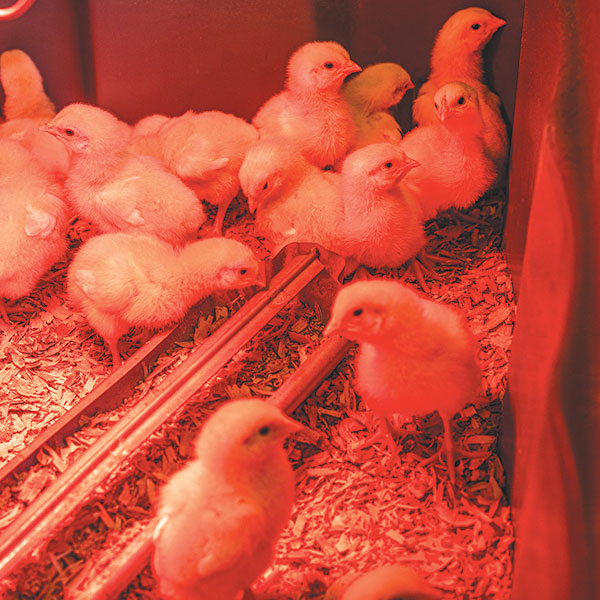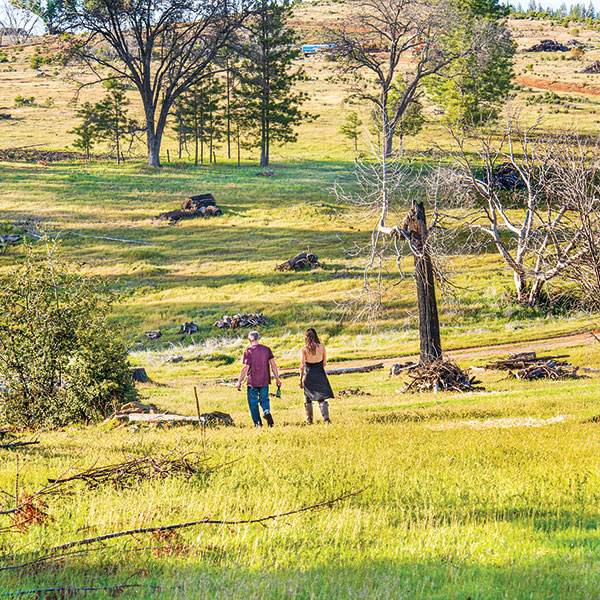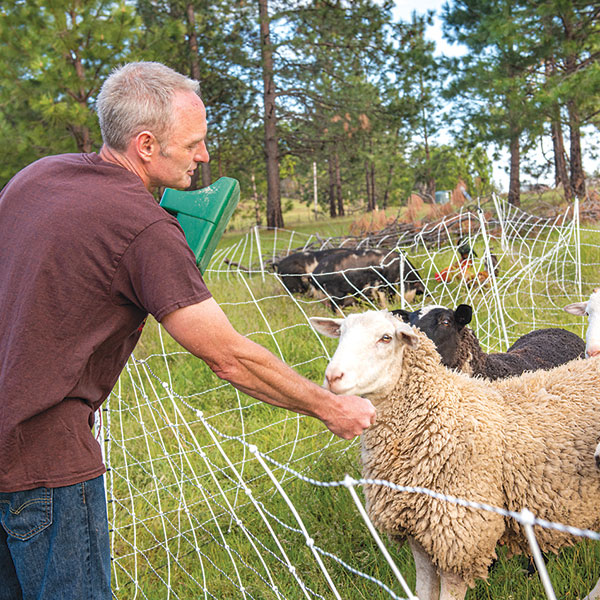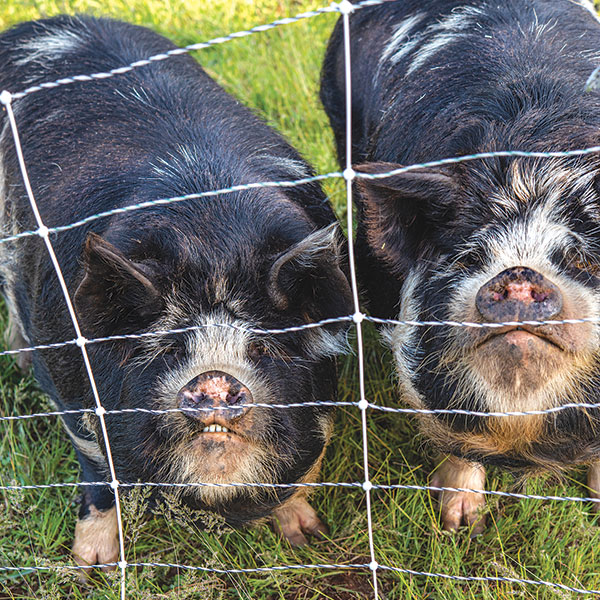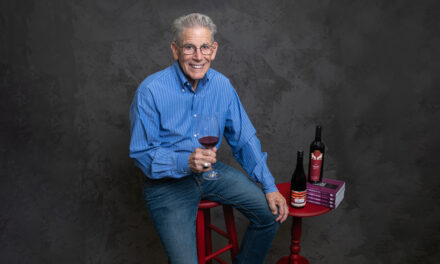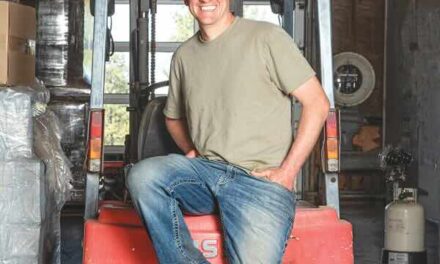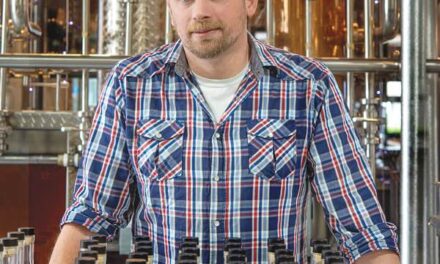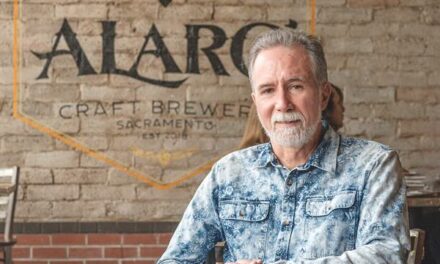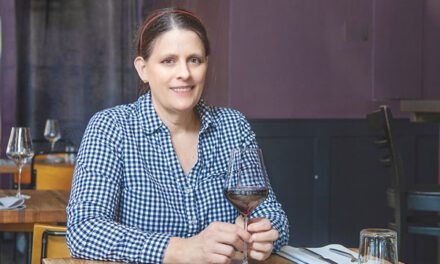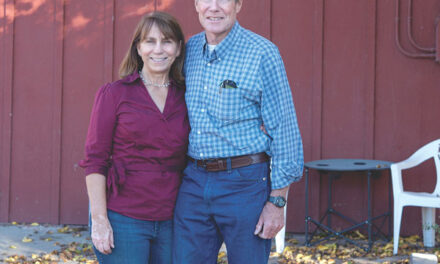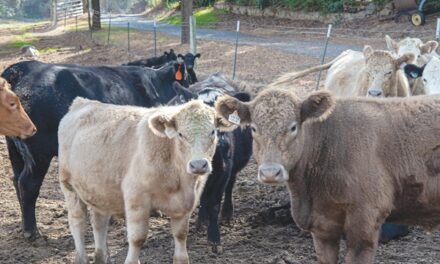From The Ashes
Their ranch brings life to charred land
By Gabrielle Myers
May 2022
Over the last year and a half, I have become intimately involved with how farmers and ranchers work to rejuvenate land burned by fire.
My partner, Jarrod McBride, bought a 10-acre ranch bounded by Mountain Ranch, Railroad Flat and Mokelumne Hill in Calaveras County that had been devastated by the Butte Fire in 2015. He calls the land Pasture Works.
While many are scared off by these charred areas, we were attracted to Pasture Works because we saw enormous potential in the less expensive mountainous terrain and felt that once land burns, it will not catch fire for quite some time.
When I met Jarrod several years ago, I was moved by his excitement as he talked about his youth on the Central Coast living on a ranch with cattle, pigs, sheep and hay. He loved caring for animals, especially his dogs. His devotion to ranch life, deep passion for animal welfare and technical knowledge from years spent studying electrical and security systems drive his work on the ranch.
Soon after moving to Pasture Works, Jarrod ordered meat birds and practiced incubating dozens of our little ladies’ offspring in the small cabin. We studied YouTube videos by Joel Salatin, Greg Judy and Justin Rhodes, and learned how to raise and butcher birds.
In the fall, we practiced our skills on 15 Cornish Cross and 15 Red Broiler chickens, five Kaki Campbell and five Rouen ducks, plus two turkeys. Jarrod purchased five sheep and moved them around the land several times a day. We learned how to slaughter the sheep and get them packed at a local butcher shop with USDA certification.
Now the three remaining ewes are open grazers, running to meet us as we descend the front porch, hovering around at the storage sheds for grain snacks. Last week we brought a ram to the ranch to create a self-sustaining flock.
Our two Kunekune pigs, Thelma and Louise, enjoy a large rotating pasture. Their noses and hooves aerate the soil. Their grunts fill our mornings as we meet them with supplemental feed and hellos.
When we started visiting the ranch on weekends from our house in Midtown, our five chickens and two ducks rode with us in a large dog crate. Peeper frogs sang from ponds below. Crickets churned out their chorus and burned pines stood as sentinels of future rejuvenation.
The “ladies,” as we call the birds, responded to the rich soil and tasty grasses, producing multi-colored eggs with bright, reddish-orange yolks and firm whites.
Living fulltime at Pasture Works, I see little transformations in the land. I sense the forests healing themselves and how the animals’ grazing allows for more water retention in our pastures, their waste like golden nuggets to the Gold Country’s charred lands.
The chickens, turkeys and ducks have pecked their way through melted metal and glass fragments from the Butte Fire, enabling us to see the fragments and pick them up, in essence filtering the land through their beaks.
The little ladies, now joined by at least 20 other hens and several roosters, follow after the sheep and pigs, enjoying free-range of the 10 acres, culling and fertilizing.
While our well has run dry several times over the last year, green pastures now span across our small valley, replacing the withered stalks and star-thistle needles of last spring. As we graze the land, we retain water and our land is less likely to burn. We also produce nourishment for others by selling our eggs and lamb meat in halves and quarters.
We are just starting, but hope to raise more sheep and pigs for on-farm sales. We hope to find the right variety of meat birds to raise and sell. We hope to have a robust vegetable garden and food forest. We hope to build our infrastructure in irrigation and fencing since all was thoroughly burned in the fire.
We hope to host ranch dinners with meat and produce raised and grown at Pasture Works. We hope to develop active composting, permaculture, vermiculture, biogas, solar and biochar systems.
Our goal is not to feed the world, but to nourish those we can and show others what partnerships among soil, water, animal, burned forest and human can do for our connected selves.
For more information on Pasture Works, visit capastureworks.com.
Gabrielle Myers can be reached at gabriellemyers11@gmail.com. Her latest book of poetry, “Too Many Seeds,” can be ordered a fishinglinepress.com. Follow us on Facebook, Twitter and Instagram: @insidesacramento.



